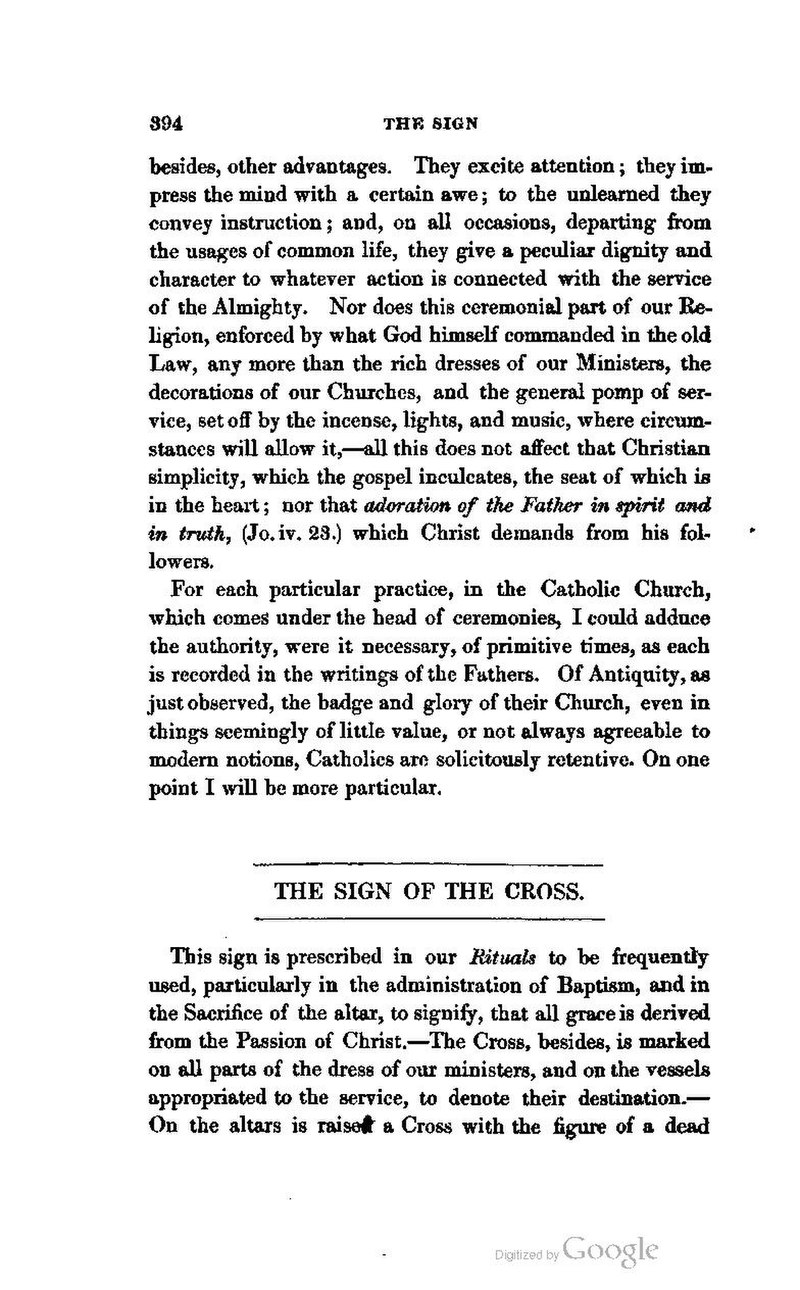besides, other advantages. They excite attention; they impress the mind with a certain awe; to the unlearned they convey instruction; and, on all occasions, departing from the usages of common life, they give a peculiar dignity and character to whatever action is connected with the service of the Almighty. Nor does this ceremonial part of our Religion, enforced by what God himself commanded in the old Law, any more than the rich dresses of our Ministers, the decorations of our Churches, and the general pomp of service, set off by the incense, lights, and music, where circumstances will allow it,-all this does not affect that Christian simplicity, which the gospel inculcates, the seat of which is in the heart; nor that adoration of the Father in spirit and in truth, (Jo.iv. 23.) which Christ demands from his followers.
For each particular practice, in the Catholic Church, which comes under the head of ceremonies, I could adduce the authority, were it necessary, of primitive times, as each is recorded in the writings of the Fathers. Of Antiquity, as just observed, the badge and glory of their Church, even in things seemingly of little value, or not always agreeable to modern notions, Catholics are solicitously retentive. On one point I will be more particular.
THE SIGN OF THE CROSS.
This sign is prescribed in our Rituals to be frequently used, particularly in the administration of Baptism, and in the Sacrifice of the altar, to signify, that all grace is derived from the Passion of Christ.- The Cross, besides, is marked on all parts of the dress of our ministers, and on the vessels appropriated to the service, to denote their destination.On the altars is raised a Cross with the figure of a dead
